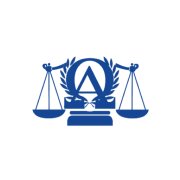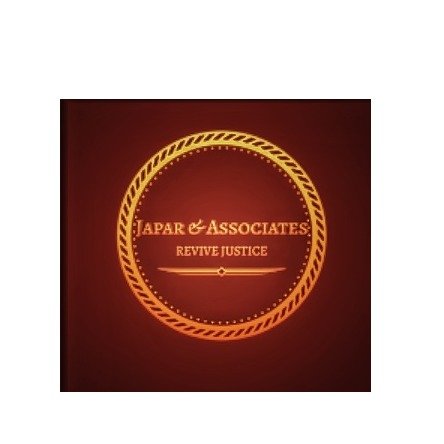Best Structured Finance Lawyers in Surabaya
Share your needs with us, get contacted by law firms.
Free. Takes 2 min.
List of the best lawyers in Surabaya, Indonesia

Jiwangga Law Office | Lawyer Surabaya | Advokat Surabaya | Pengacara Surabaya
30 minutes Free ConsultationAbout Structured Finance Law in Surabaya, Indonesia
Structured finance refers to complex financial transactions and instruments that are designed to meet specific risk management, funding, or investment objectives. In Surabaya, Indonesia, structured finance plays a significant role in supporting business growth and infrastructure development. Typical structures include securitization, asset-backed securities, project finance, and syndicated loans. Local legal frameworks and regulations ensure these arrangements comply with Indonesian financial, corporate, and banking laws, reflecting the unique business environment of Surabaya as a major commercial hub.
Why You May Need a Lawyer
Engaging in structured finance deals can be intricate and carry legal risks. You might require the assistance of a legal expert in several situations, such as:
- Negotiating and drafting structured finance arrangements including project finance or securitization transactions.
- Ensuring compliance with Indonesian financial and capital markets regulations.
- Addressing cross-border issues involving international lenders, investors, or credit enhancement providers.
- Advising on tax, insolvency, or restructuring matters relating to complex financing structures.
- Managing disputes or defaults in structured finance agreements.
- Navigating approvals from relevant Indonesian authorities.
- Understanding the implications of local laws on foreign entities or joint ventures.
Local Laws Overview
Structured finance operations in Surabaya, as part of Indonesia, are primarily governed by national laws with regional implications. Key regulatory frameworks include:
- Banking Law (Law No. 7 of 1992 as amended by Law No. 10 of 1998): Sets out regulations for banking operations, lending, and risk management.
- Capital Markets Law (Law No. 8 of 1995): Overseen by the Indonesia Financial Services Authority (OJK), this law regulates securities issuance, including asset-backed securities and collective investment contracts.
- Company Law (Law No. 40 of 2007): Establishes the legal foundations for entities engaging in structured finance transactions.
- OJK Regulations: The OJK regularly issues circulars and regulations affecting structured products, securitizations, and disclosure requirements.
- Sharia-compliant Structured Finance: There are specific provisions for structured finance in line with Islamic principles, relevant for sukuk and similar products.
- Foreign Exchange Regulations: The Bank Indonesia rules affect cross-border structured finance and capital flows.
For businesses and individuals in Surabaya, understanding how these national laws interact with local commercial practices is crucial to successful structured finance transactions.
Frequently Asked Questions
What is structured finance and how is it used in Surabaya?
Structured finance involves tailored financial solutions such as securitizations, project finance, and complex loan arrangements. In Surabaya, it is often used for infrastructure projects, property developments, and large-scale corporate financing.
Which authorities regulate structured finance in Indonesia?
The Financial Services Authority (OJK) and Bank Indonesia play central roles in regulating structured finance products and market participants.
Are there specific legal requirements for foreign investors in Surabaya’s structured finance market?
Foreign investors must comply with foreign ownership limitations, currency controls, and may require approvals from the OJK or Bank Indonesia, depending on the structure of the transaction.
Is it possible to execute Sharia-compliant structured finance transactions in Surabaya?
Yes, Indonesia has robust regulations for Islamic finance, allowing for structures like sukuk and other sharia-compliant investments.
What are the main risks with structured finance transactions in Surabaya?
Key risks include regulatory changes, market volatility, counterparty performance, and legal enforceability of certain arrangements.
Do I need a local partner to participate in structured finance deals in Surabaya?
While not always mandatory, having a local partner or entity is often beneficial due to regulatory, operational, and market considerations.
What due diligence should be carried out before entering a structured finance agreement?
Due diligence should cover the legal status of assets, regulatory compliance, creditworthiness of counterparties, tax implications, and potential legal disputes.
How are disputes in structured finance transactions resolved?
Disputes may be resolved through Indonesian courts or, if specified, through arbitration. Many agreements include clauses on dispute resolution mechanisms and governing law.
How long does it take to complete a structured finance transaction?
The timeline varies depending on complexity, regulatory approvals, and negotiation phases, but typically ranges from several weeks to a few months.
Can legal counsel assist with cross-border structured finance in Surabaya?
Yes, lawyers experienced in both Indonesian and international finance laws can help navigate cross-border deals, mitigating legal and regulatory risks.
Additional Resources
If you are seeking more information or support on structured finance in Surabaya, consider reaching out to these resources:
- Financial Services Authority (OJK Indonesia) - for regulations and licensing information.
- Bank Indonesia - central banking regulations and foreign exchange controls.
- Indonesian Advocates Association (Peradi) - for a directory of qualified legal professionals.
- Local chambers of commerce in Surabaya for networking and business guidance.
- Law faculties at major universities in Surabaya such as Universitas Airlangga - for academic and legal research resources.
Next Steps
If you believe structured finance solutions are suitable for your needs or if you face legal questions in this field, you should:
- Consult with a local lawyer in Surabaya who specializes in structured finance, corporate, banking, or capital markets law.
- Prepare relevant documentation and a clear summary of your objectives for the initial consultation.
- Ask about legal fees and expected timelines for your transaction.
- Remain updated on regulatory changes that may affect your structured finance transactions.
- Engage professional advisors early in the process to avoid missteps and to ensure compliance with all legal requirements.
Legal requirements in structured finance can be complex, particularly for cross-border or high-value transactions. Seeking timely, qualified legal advice is the best way to protect your interests and ensure the success of your financial arrangements in Surabaya, Indonesia.
Lawzana helps you find the best lawyers and law firms in Surabaya through a curated and pre-screened list of qualified legal professionals. Our platform offers rankings and detailed profiles of attorneys and law firms, allowing you to compare based on practice areas, including Structured Finance, experience, and client feedback.
Each profile includes a description of the firm's areas of practice, client reviews, team members and partners, year of establishment, spoken languages, office locations, contact information, social media presence, and any published articles or resources. Most firms on our platform speak English and are experienced in both local and international legal matters.
Get a quote from top-rated law firms in Surabaya, Indonesia — quickly, securely, and without unnecessary hassle.
Disclaimer:
The information provided on this page is for general informational purposes only and does not constitute legal advice. While we strive to ensure the accuracy and relevance of the content, legal information may change over time, and interpretations of the law can vary. You should always consult with a qualified legal professional for advice specific to your situation.
We disclaim all liability for actions taken or not taken based on the content of this page. If you believe any information is incorrect or outdated, please contact us, and we will review and update it where appropriate.
















